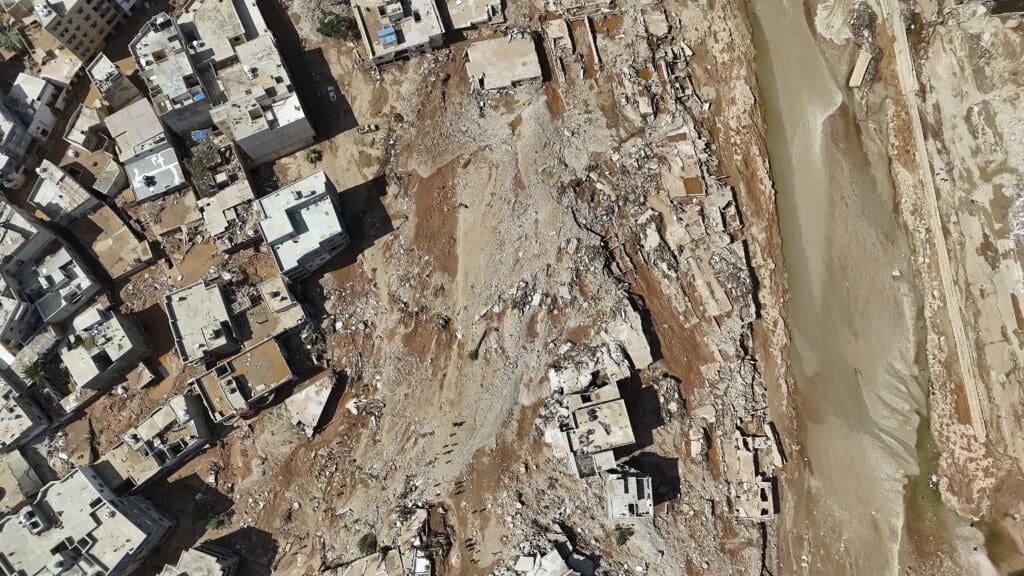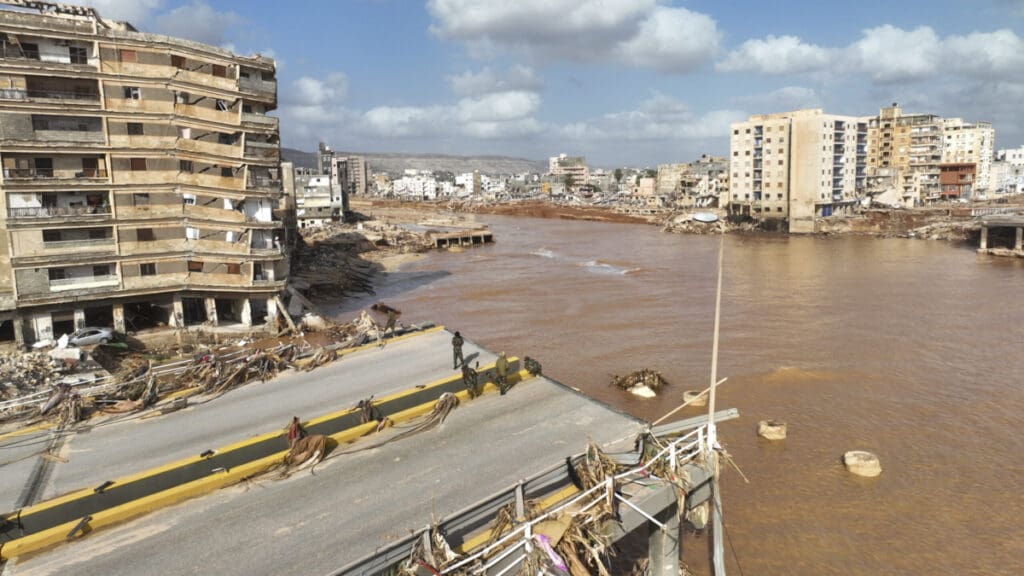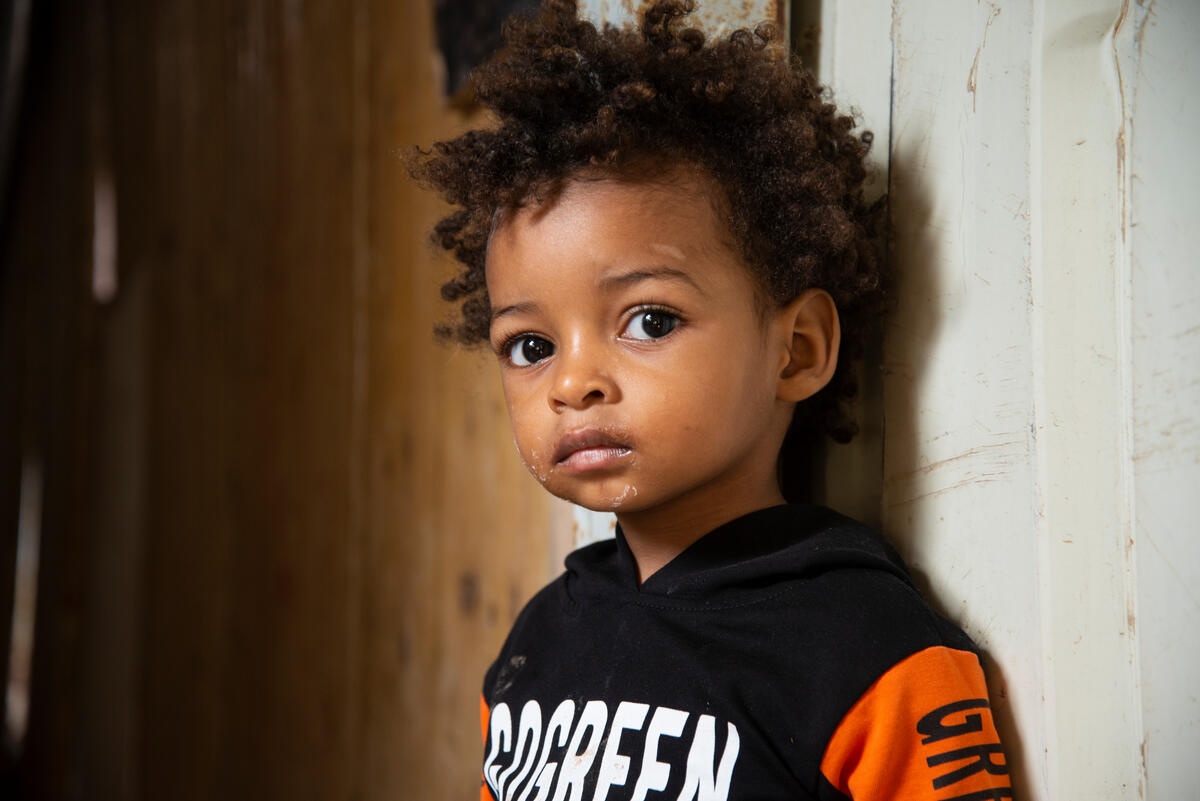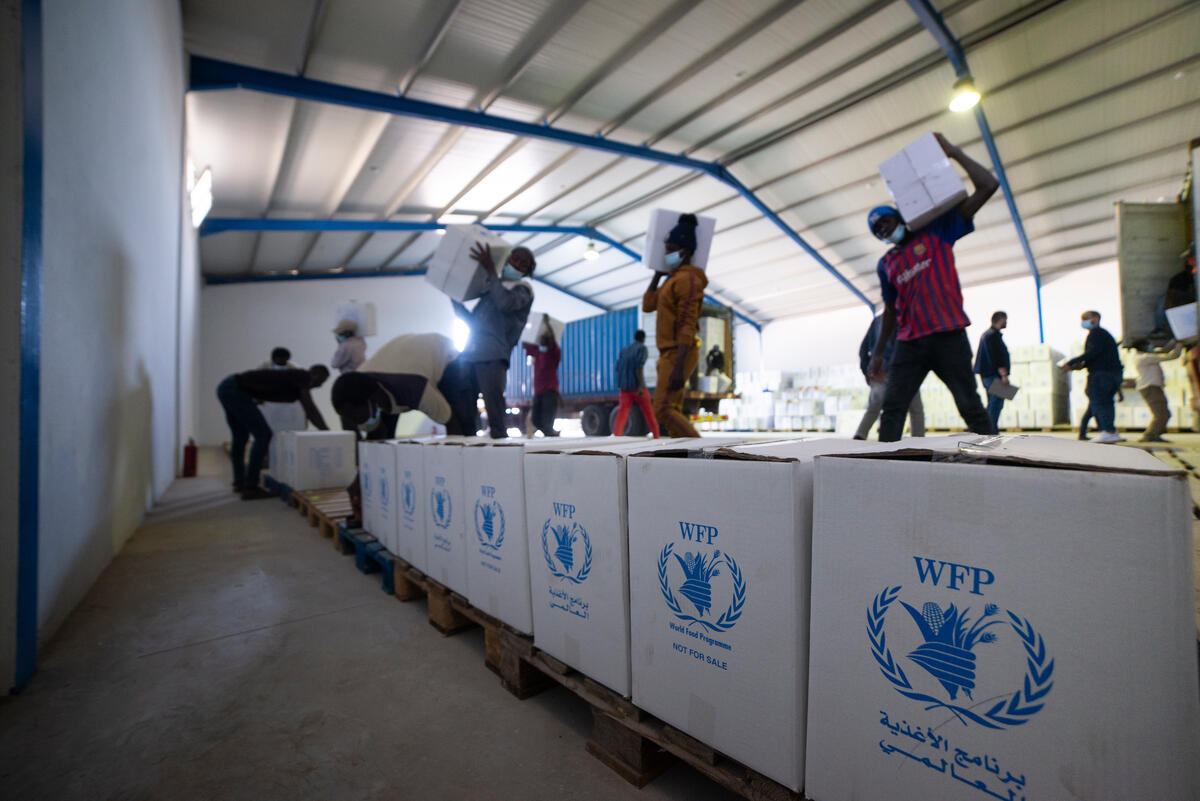How to Help Libya Flood Survivors: Send Food & Humanitarian Aid

Over the last week, Storm Daniel moved across the Mediterranean leaving destruction in its wake. On Sunday night, September 10, the deadly storm hit Libya. The United Nations World Food Programme (WFP) is on the ground responding to this emergency and assisting flood-affected families.
What Happened in Libya?
Storm Daniel triggered heavy flooding that has killed nearly 4,000 people and left 9,000 missing. Around 40,000 people are now estimated to be displaced in Libya. On Sunday night, the floodwaters came and pummeled dams outside the city of Derna. Two aging dams collapsed and released flash floods cascaded into the city. Entire neighborhoods were submerged and roads and homes have been destroyed.
Derna is the worst-affected city, but other cities including Albayda, Almarj, Benghazi, Bayada, Al Owailia, Taknes (AlJabal Al Akhdar), Talmeitha, Tobruk, Toukra, Shahhat and Sousa were also impacted by the storm.
How Climate Change and Conflict Made the Disaster Worse
Climate change and conflict are the top leading drivers of hunger
Mediterranean storms are common, and Libya has experienced floods in the past. However, Storm Daniel caused flooding at catastrophic proportions that Libya has rarely seen before. Climate change is increasing the intensity of storms like Storm Daniel. Libya has also experienced frequent droughts that dry out the land and make it difficult to absorb water when storms occur.
Over the past decade, Libya has also experienced political and economic instability. This instability has increased poverty and hunger rates in the country. When disasters like the floods hit, food is often nearly impossible to find or afford. For communities already facing hunger, the situation becomes even more dire.

Mediterranean storm Daniel caused devastating floods in Libya that broke dams and swept away entire neighborhoods in multiple coastal towns, the destruction appeared greatest in Derna city.
What Are the Needs in Libya?
Search and rescue is ongoing in Libya. Survivors need food, water, medical aid and shelter – essentials to make it to the next day. With infrastructure completely wiped out, especially in the populated city of Derna, many people are dependent on humanitarian aid organizations.
In the coming weeks, as immediate relief efforts shifts into long-term assistance, many of these needs will remain the same.
DONATE NOW: Send Food to Flood Survivors in Libya
What Is WFP Doing to Help Survivors?
The U.N. World Food Programme is meeting one of Libyans’ most essential needs: food. We are delivering emergency food assistance to 9,000 flood-affected people. So far, we have reached 3,500 people in Derna alone. Food baskets include rice, pasta, wheat flour, sugar, white beans, tomato paste and oil. We are also procuring ready-to-eat food – including High Energy Biscuits – locally and regionally to meet the rising needs.
Over the next three months, the U.N. World Food Programme aims to provide monthly food assistance to 100,000 people in flood-affected areas.

In emergencies like this, women and children are often at highest risk of experiencing extreme hunger.
The U.N. World Food Programme is part of the Libya Rapid Response Mechanism (RRM), which brings together local partners and UN agencies. RRM ensures the quick access needed to provide assistance within 72 hours of a disaster.
The U.N. World Food Programme has operated in Libya since 2011. Prior to the storm, we assisted more than 52,000 people in Libya each month with food and cash assistance. We also supported the government’s resilience-building activities including school meals programs.

Within 72 hours of an emergency hitting, the U.N. World Food Programme can deploy relief teams and begin the first distributions of aid.
How Can I Help People in Libya?
The best thing you can do to help flood-affected families in Libya is to donate.
As one of the world’s leading humanitarian organizations, the U.N. World Food Programme has the expertise and reach to assist communities in need around the world. We work in over 120 countries and territories, delivering food and other relief to over 150 million people.
We worked in Libya prior to the floods and will continue to provide emergency food assistance in its time of need. Help us meet the rising needs of this humanitarian emergency. When you donate, you can be sure that your dollar will be used to reach the most people possible with lifesaving food.
DONATE TODAY: Send Food to Disaster Survivors in Libya and around the world
Here’s What Else You Need to Know
- In the first few hours and days after a disaster like the floods in Libya, we are often one of the first humanitarian organizations to distribute ready-to-eat foods to people facing the greatest need. Learn more about the type of food we deliver.
- WFP is the frontline agency responding to emergencies caused by conflict, climate shocks, pandemics and other disasters. Learn more about our emergency response programs.
- Unlike Libya, there are countries we don’t operate in but still provide emergency food assistance. First, we need to be invited in. Find out why and see what the first 72 hours of an emergency operation look like for WFP.
- Years of political instability and the economic impact of the COVID-19 pandemic have left Libya in a fragile state of transition to peace and stability. Read about the state of hunger in Libya and our response.




